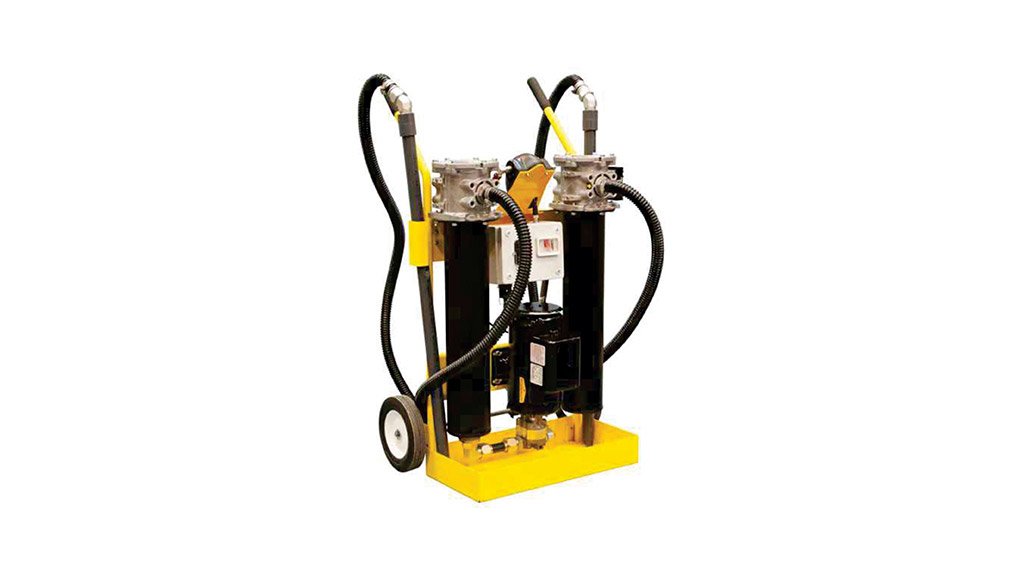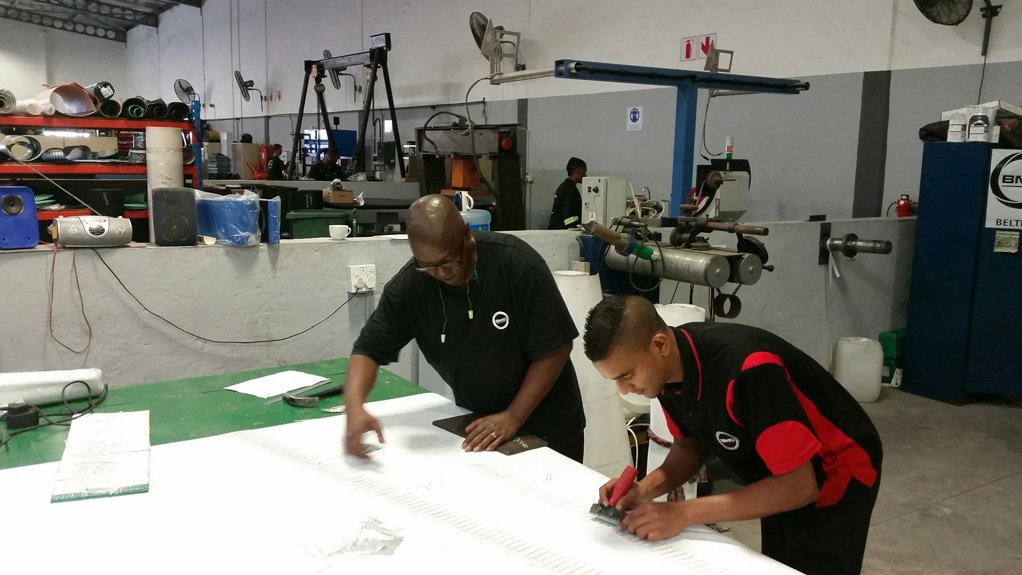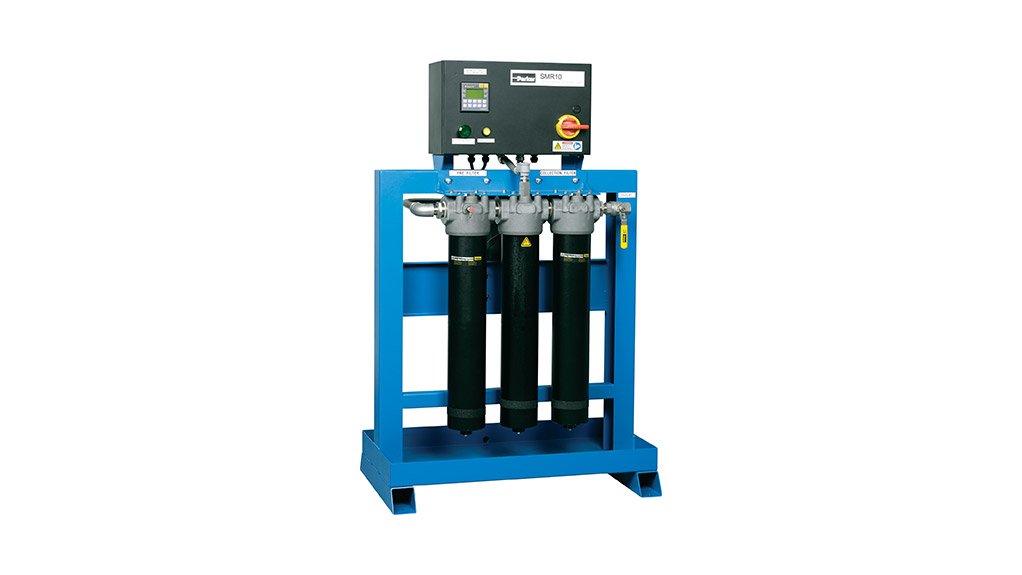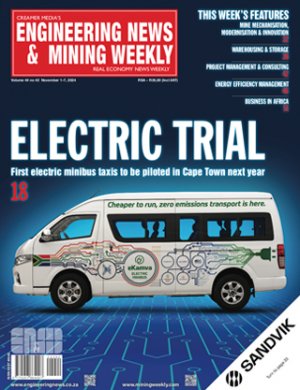Fluid maintenance is frequently neglected and the consequences of using contaminated fuel and lubricant oil are often underestimated, says technical solutions provider BMG fluid technology business unit manager David Dyce.
“With the preferred trend for diesel-fuelled equipment, there is greater demand for the supply of ‘cleaner’, noncontaminated diesel and lubricant oils from diverse sectors, including earthmoving, mining, transport and shipping.”
Dyce adds that the control and prevention of fluid contamination ensures optimum performance, improved reliability and extended service life of machinery, equipment and vehicles.
The main cause of contamination in diesel and lubricant oils is water and dirt ingress. Foreign materials encourage the formation of bacteria cultures, which feed on hydrocarbons, which, in turn, degrade fuel quality, he says.
“Without the implementation of a structured control and contamination prevention programme, premature equipment failure is likely to occur, resulting in unnecessary downtime and costly replacement of parts.”
Filtration Offerings
The BMG Fluid Technology division offers advanced filtration, separation and purification solutions to ensure that fluids – including water, fuel and lubricant oil – meet the ideal cleanliness standards.
“BMG’s Fluid Technology division offers solutions for hydraulics and pneumatics, lubrication, fuel and industrial filtration systems, hydraulic hose and fittings, as well as instrumentation, pumps and industrial valves,” outlines Dyce.
BMG – a local distributor for motion and control technologies developer Parker’s filtration products – offers advanced oil filtering and purification products that prevent contamination, reduce daily oil consumption and minimise waste. These technologies include Parker oil purification trolleys and portable fluid purification systems.
BMG’s portable 10 MFP series hydraulic Parker filtration trolleys, which protect hydraulic systems from contamination, are designed to prefilter and transfer lubrication fluids – like hydraulic, gear and lubrication oils with a maximum viscosity of 108 centistokes (cSt) – safely from drums or storage tanks to system reservoirs.
The trolleys are also used to filter a new fluid or condition fluids already in use, and can also complement an existing filtration system or remove free water from a system.
The trolleys’ Moduflow dual-stage, double-length filtration system offers pump protection and extends the service life of fluids and particulate elements. Water removal elements in the system remove free water, above a particular fluid’s saturation level. Dirt and water are efficiently removed from the system in one process.
Dyce says a new optional feature of the trolleys is the icountPD particle detector, which can be mounted to the standard frame of the filter trolley, for enhanced monitoring of the hydraulic system and accurate detection of particulates when transferring oil. The particle detector system configuration, coupled with the filter cart, is a cost-effective solution to fluid management and contamination control. The system’s industrial-quality gear pump has also been designed for quiet operation, offering a maximum flow of 38 ℓ/min.
The trolleys have a heavy-duty frame and are operated easily by one person. Rubber wheels ensure ease of mobility and carbon steel wheels are available for use in underground mining applications. The system includes a 3.35 m kink-resistant hose and wand assemblies.
Additionally, the Parker Sentinel portable fluid purification systems – also offered by BMG – are incorporated into planned maintenance programmes to protect hydraulic systems and increase productivity by eliminating moisture in oil.
The Sentinel system operates at flow rates of 12 ℓ/min, with a maximum online operating pressure of 4 bar and with a maximum viscosity of 400 cSt. Its design allows for samples to be taken directly from a hydraulic reservoir, barrel, vehicle or storage tank, ensuring suitability for use in diverse industries, including renewable energy, marine, manufacturing, mining, construction, agriculture and transport.
The system also operates in three modes for maximum efficiency and extended service life. When water is detected in standard mode, the contaminated oil is drawn into the unit for recirculating to achieve the required percentage relative humidity (RH) level of moisture. In sentinel mode, the system automatically turns on, measures water content and runs dehydration cycling if necessary, shutting itself off once the fluid reaches the percentage RH set point. Vacuum dehydration technology ensures that only clean, dry oil subsequently re-enters the reservoir system through the outlet port. The system’s sample mode indicates which operational mode is required, after drawing three batches of hydraulic fluid into the system, where the overall average of moisture levels and temperatures are determined.
“The system’s high visibility digital display provides an accurate assessment of the fluid condition and shows measured parameters, including moisture sensor readings, as a percentage of RH. Stored data can be downloaded to a computer or laptop for analysis,” explains Dyce.
In applications where there is excessive moisture in hydraulic oil, BMG recommends using the Parker PVS series portable purification system, which is designed for automatic operation.
The system incorporates a variable flow circuit, which allows for the oil to be heated quickly, for faster water removal. Desiccant breathers allow for dry and clean air intake for more efficient operation, and coalescing or packed tower elements accommodate up to 460 cSt Oil viscosities and dispersal elements accommodate up to 108 cSt Oil viscosities. A moisture sensor measures and reports real-time water content in per cent saturation and a programmable thermostat maintains a preset oil temperature to prevent overheating.
Further, corrosion-resistant stainless steel is used for primary wetted surfaces and clear plexiglass covers on the condensate tank. A vacuum chamber allows for visual inspections and a reverse-phase switch prevents incorrect rotation and collectively allows for easy maintenance.
Edited by: Zandile Mavuso
Creamer Media Senior Deputy Editor: Features
EMAIL THIS ARTICLE SAVE THIS ARTICLE
ARTICLE ENQUIRY
To subscribe email subscriptions@creamermedia.co.za or click here
To advertise email advertising@creamermedia.co.za or click here

















